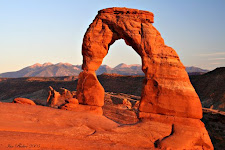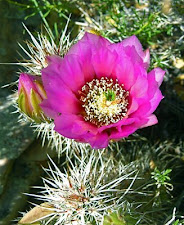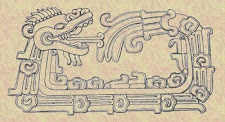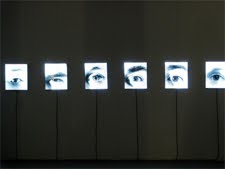Book Excerpt from Robert Penn Warren's All The King's Men
Living in the late age of the Interstate Highway system and Flying J Truckstops with Mickey D's and Bob's Big Boy and signs for a Cracker Barrel every fifty miles in the South and Midwest. Living in the dawn of the electric car with plug ins at Whole Foods for the Prius people with their canvas shopping bags and yoga pants, it's hard to even imagine the world of Robert Penn Warren's All The King's Men, the world of American Graffiti, back when the automobile was a novelty, when cruising the "strips" of small town America in loud gas guzzlers was the favorite national pastime, when drive ins were really drive-ins: burger joints with food served on window trays, movie theaters with great flashing screens lighting up the night for miles and liquor stores where they'd pop the cap on your forty, pass it through your driver's window and wish you a good evening.
It's even hard to imagine the novelty of the road itself - the smooth, black slab cutting through the fields and forests like a gun shot blowing through everything in its path. The interstates blasted right through the center of sleepy old towns, the church steeples hidden now behind billboards and exit signs, the old silence now filled with a persistent surf-like hum of vulcanized rubber on asphalt and the occasional grind of sixteen wheelers downshifting and the bang of their enormous loads crashing over potholes.
Of course we still love our cars, especially when we are young and we hang our heads out the windows to feel the wind in our hair and fly... really fly, clear across the country in mere days with the Rolling Stones on the radio and horizontal lightning skimming the Iowa cornfields.
But we take cars for granted now. The are rounded and practical. They are quiet and fuel efficient. They have seat belts and air bags and robotic female voices that tell us to "turn left here." So it is a rare thrill to be transported back to that novel era when the car changed our lives and became extensions of our ourselves, part of our personality and self-image, a revving, breathing manifestation of our imaginations. All of us suddenly brave pioneers jetting west in eight-cylinder, tail-finned wagons.
The opening paragraphs of Robert Penn Warren's "All The King's Men" are like a time machine... not just giving us a glimpse of freshly paved America, but transporting us there with new car smell and all.
"MASON CITY.
To GET there you follow Highway 58, going northeast out of the city, and it is a good highway and new. Or was new, that day we went up it. You look up the highway and it is straight for miles, coming at you, with the black line down the center coming at and at you , black and slick and tarry-shining against the white of the slab so that only the black line is clear, coming at you with the whine of the tires, and if you don't quit staring at that line and don't take a few deep breaths and slap yourself hard on the back of the neck you'll hypnotize yourself and you'll come to just at the moment when the right front wheel hooks over into the black dirt shoulder off the slab, and you'll try to jerk her back on but you can't because the slab is high like a curb, and maybe you'll try to reach to turn off the ignition just as she starts the dive. But you won't make it, of course. Then a nigger chopping cotton a mile away, he'll look up and see the little column of black smoke standing up above the vitriolic, arsencial green of the cotton rows, and up against the violent, metallic, throbbing blue of the sky, and he'll say, "Lawd God, hit's a-nudder one done done hit!" And the next nigger down the next row, he'll say, "Lawd God," and the first nigger will giggle, and the hoe will lift again and the blade will flash in the sun like a heliograph. Then a few days later the boys from the Highway Department will mark the spot with a little metal square on a metal rod stuck in the black dirt off the shoulder, the metal square painted white and on it in black a skull and crossbones. Later on love vine will climb up it, out of the weeds.
But if you wake up in time and don't hook your wheel off the slab, you'll go whipping on into the dazzle and now and then a car will come at you steady out of the dazzle and will pass you with a snatching sound as though God Almighty had ripped a tin roof loose with his bare hands. Way off ahead of you , at the horizon where the cotton fields are blurred into the light, the slab will glitter and gleam like water, as though the road were flooded. You'll go whipping toward it, but it will always be ahead of you, that bright, flooded place, like a mirage. You'll go past the little white metal squares set on metal rods, with the skull and crossbones on them to mark the spot. For this is the country where the age of the internal combustion engine into its own. Where every boy is Barney Oldfield, and the girls wear organdy and batiste and eyelet embroidery and no panties on account of the climate and have smooth little faces to break your heart and when the wind of the car's speed lifts up their hair at the temples you see the sweet little beads of perspiration nestling there, and they sit low in the seat with their little spines crooked and their bent knees high toward the dashboard and not too close together for the cool, if you could call it that, form the hood ventilator. Where the smell of of gasoline and burning brake bands and red-eye is sweeter than myrrh. Where the eight-cylinder jobs come roaring around the curves in the red hills and scatter the gravel like spray, and when they ever get down in the flat country and hit the new slab, God have mercy on the mariner."
Subscribe to:
Post Comments (Atom)



















.jpg)





No comments:
Post a Comment